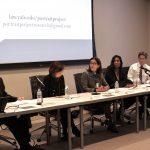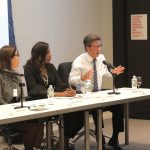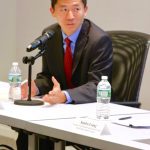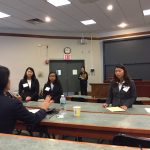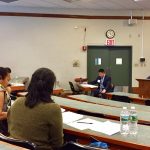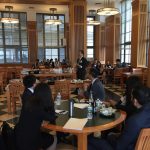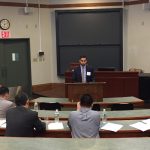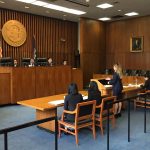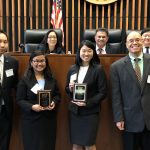WASHINGTON — The National Asian Pacific American Bar Association (NAPABA) is proud to present the 2017 NAPABA President’s Award to Goodwin Liu, associate justice of the California Supreme Court. The NAPABA President’s Award is given to NAPABA members who demonstrate an exceptional commitment to NAPABA, the legal community, and the greater Asian Pacific American community.
The 2017 NAPABA President’s Award will be presented at the 2017 NAPABA Convention in Washington, D.C., on Nov. 3, 2017.
“Justice Liu has been an exemplary leader in the legal profession and in the Asian Pacific American community,” said NAPABA President Cyndie M. Chang. “In addition to his frequent engagement with Asian Pacific American lawyers and law students throughout the country, Justice Liu’s recent publication, ‘A Portrait of Asian Americans in the Law,’ has been a game-changer for awareness within and beyond our community of the successes and ongoing challenges that Asian Pacific Americans have experienced in the legal profession.”
The Portrait Project — a two-year study — revealed that Asian Pacific American lawyers have increased in number from 10,000 in 1990 to over 50,000 today, but they face challenges reaching the top ranks of the profession. For example, although Asian Pacific Americans are the largest minority group in big law firms, they have the highest attrition rates and the lowest ratio of partners to associates.
The son of Taiwanese immigrants and the first in his family to become a lawyer, Justice Liu was appointed to the California Supreme Court in 2011. He was previously a law professor and associate dean at the UC Berkeley School of Law. An influential scholar and acclaimed teacher, he received UC Berkeley’s Distinguished Teaching Award in 2009. He clerked for Justice Ruth Bader Ginsburg on the U.S. Supreme Court and Judge David Tatel on the U.S. Court of Appeals for the D.C. Circuit. He has also worked as special assistant to the deputy secretary of the U.S. Department of Education, as a litigation associate at O’Melveny & Myers in Washington, D.C., and as senior program officer for higher education at the Corporation for National Service (AmeriCorps).
Justice Liu serves on the Council of the American Law Institute; the National Academy of Sciences Committee on Science, Technology, and Law; and the board of directors of the James Irvine Foundation. He has previously served on the Stanford University Board of Trustees and the governing boards of the American Constitution Society, National Women’s Law Center, and Public Welfare Foundation.
NAPABA congratulates Justice Goodwin Liu as the 2017 NAPABA President’s Award recipient.
For more information, the media may contact Brett Schuster, NAPABA communications manager, at 202-775-9555 or [email protected].
The National Asian Pacific American Bar Association (NAPABA) is the national association of Asian Pacific American attorneys, judges, law professors, and law students. NAPABA represents the interests of over 50,000 attorneys and over 80 national, state, and local bar associations. Its members include solo practitioners, large firm lawyers, corporate counsel, legal services and non-profit attorneys, and lawyers serving at all levels of government.
NAPABA continues to be a leader in addressing civil rights issues confronting Asian Pacific American communities. Through its national network of committees and affiliates, NAPABA provides a strong voice for increased diversity of the federal and state judiciaries, advocates for equal opportunity in the workplace, works to eliminate hate crimes and anti-immigrant sentiment, and promotes the professional development of people of color in the legal profession.
To learn more about NAPABA, visitwww.napaba.org, like us onFacebook, and follow us on Twitter(@NAPABA).


